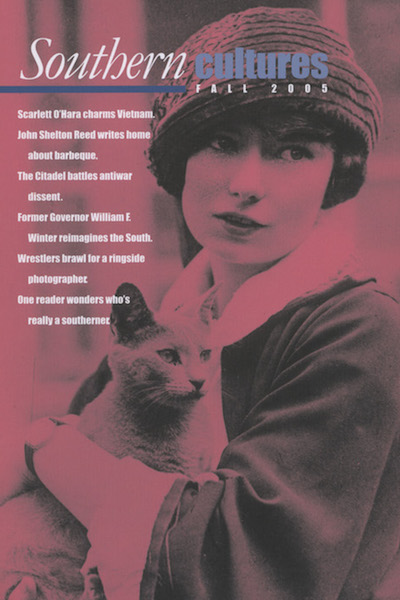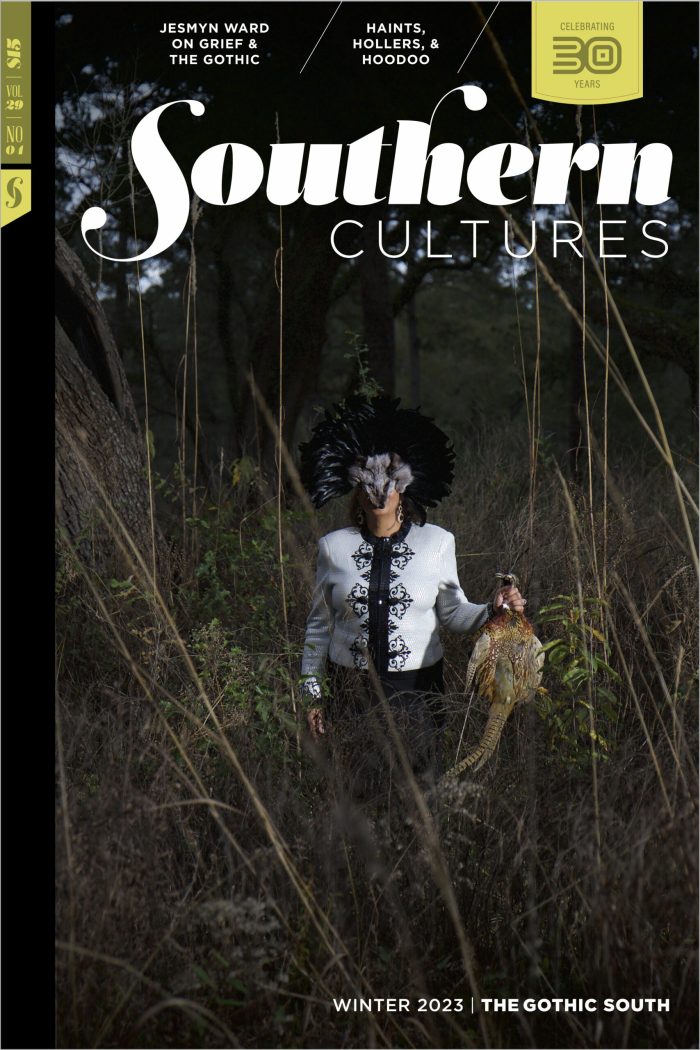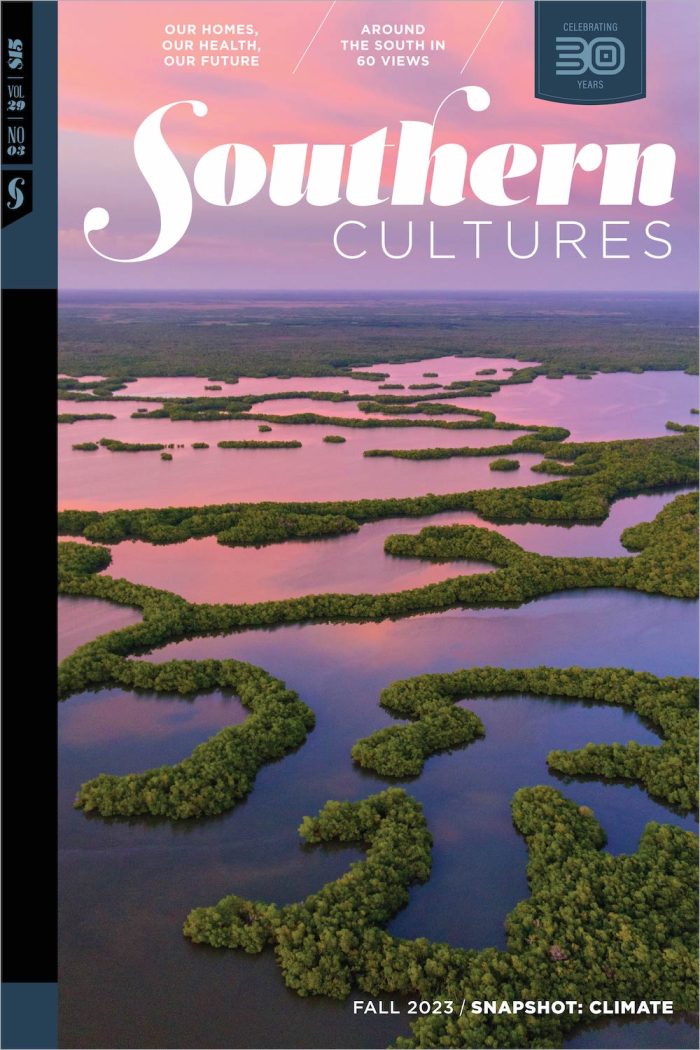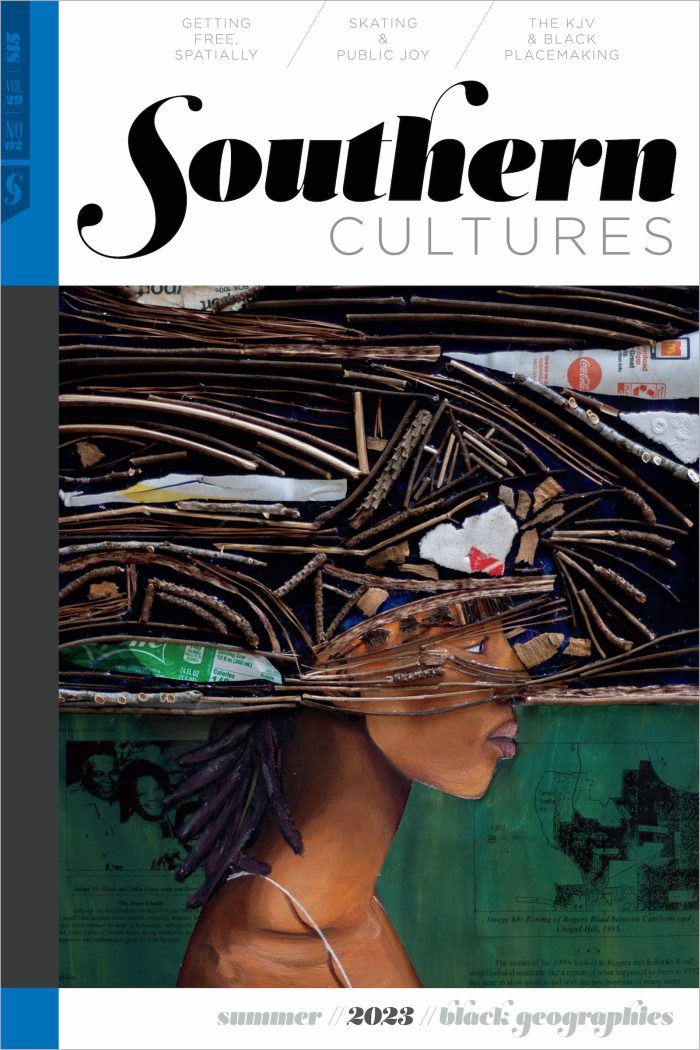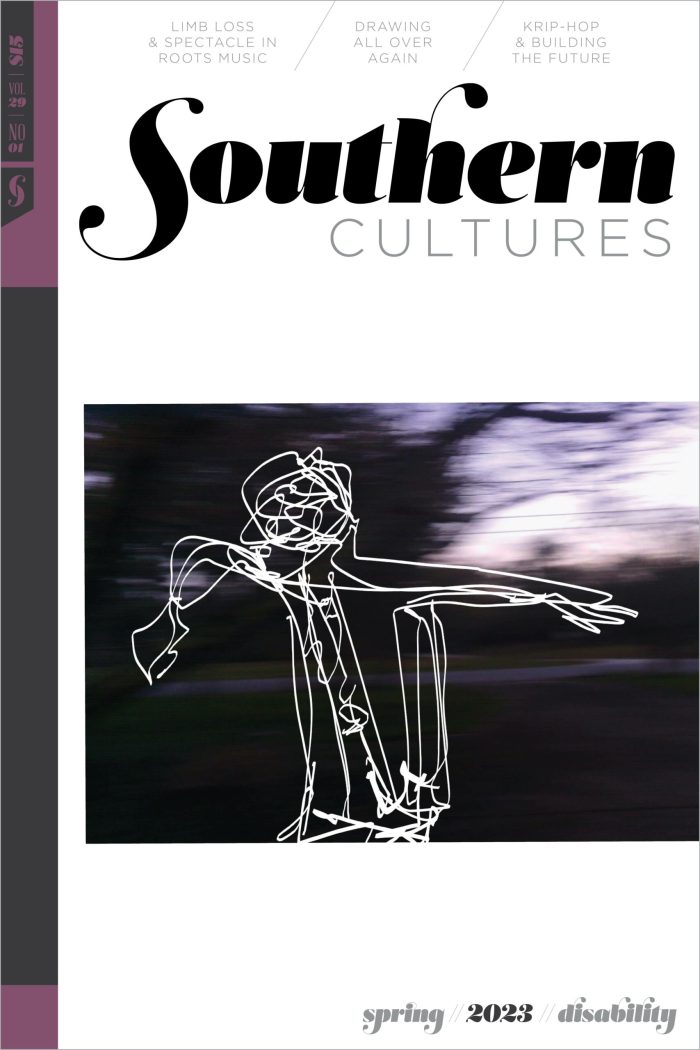BUY ACCESS
by Pauline M. Willis
“‘You seem to be saying that the Beverly Hillbillies and The Dukes of Hazard types are the real southerners.'” Much discussion and writing about the American South are explicitly or implicitly rooted in two broad, highly interdependent issues: southern distinctiveness and southern identity. In our Spring 2005 issue, we published two essays on these topics, »
BUY ACCESS
by Harry L. Watson
“Appearing in thirty million copies worldwide and almost two hundred foreign editions, the story of Rhett and Scarlett had conveyed something irresistible to readers almost everywhere, surely including many who couldn’t tell Stone Mountain from Mount Rushmore.” Southerners, of all people, should know how hard it is to get over a civil war. The bloodshed »
BUY ACCESS
by Mart A. Stewart
“‘There were a lot of Scarletts in Vietnam after 1975.'” On his tour through modern Georgia in search of memories of the Old South, Tony Horwitz marveled at Japanese tourists’ fascination with Gone With the Wind and observed the exchanges between them and a busy Vivien Leigh–Scarlett O’ Hara impersonator, Melly Meadows. Meadows had taken her act »
BUY ACCESS
by Alex Macaulay
“Pat Conroy, a 1967 Citadel graduate, recounts the horrors of his freshman year in gruesome detail. In My Losing Season, Conroy describes the plebe system he endured as ‘mind-numbing, savage, unrelenting, and base.'” In the spring of 1970, a few hours before dawn, a car passed through Lesesne Gate and entered The Citadel, the Military »
BUY ACCESS
by Joseph Shay
“The crowd was at a fever pitch, seemingly waiting for an excuse to tear something apart. Would it be me?” In local auditoriums, national guard armories, gyms, and bars, people gather to watch epic battles between heroes and villains. These are regular working people, waitresses and factory workers, farmers and mechanics, retail clerks, young and »
BUY ACCESS
by Edison Jennings
“Only later would I learn / about the great-winged vultures the long-gone pharaohs deified. . .” Shooting the Breeze Aloof and aloft, the buzzards circled the farm,and we would shoot at them, to no effect,small guns popping, round after round.Did we know better?
BUY ACCESS
by John Shelton Reed
“He remembers seeing a man from the Church of Christ cooking a steer with some apparatus involving chicken wire, an oil-rig pipe, and a hole in the ground. He also remembers playing cowboys and Indians with a young Billy Clinton.” Southerners don’t go to London to eat barbecue. At least we shouldn’t. But after we’ve »
BUY ACCESS
by William F. Winter
“Now it is time to talk about what we are called on to do in this latter day South. Now it is time for us to have an accounting of just where we are.” It was just over thirty years ago in the spring of 1971 that former North Carolina Governor Terry Sanford, then the »
by W. Fitzhugh Brundage
University of North Carolina Press, 2004 Soon after the Civil War—and long before the current interest in “historical memory”—Americans understood that the way they remembered the Civil War would define their nation. For nearly a century and a half, commemoration of the Civil War has served as a sort of national Rorschach test, exposing divisions »
BUY ACCESS
by David A. Davis
University of North Carolina Press, 2005University of Georgia Press, 2005Duke University Press, 2004 Between 1763 and 1767 Charles Mason and Jeremiah Dixon led an expedition to survey the boundary between Pennsylvania and Maryland. During the slave debates leading up to the Civil War, the so-called Mason and Dixon Line became the unofficial northern border of »
BUY ACCESS
by Peter S. Carmichael
Louisiana State University Press, 2004 Over the last fifteen years, historians such as Eugene Genovese and Michael O’Brien have done much to recover the vibrancy of the Old South’s intellectual life. This scholarly reappraisal has demolished the idea that slavery extinguished serious inquiry or discouraged critical thought below the Mason-Dixon Line. Historians generally agree that »
